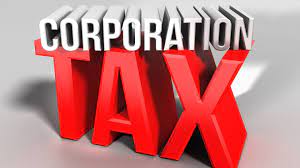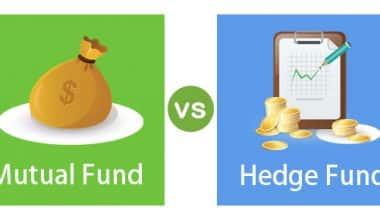Corporation Tax is levied on the international profits of companies based in the United Kingdom. Profits include both income and capital gains. To pay a corporation tax, it must be by non-resident corporations that conduct business in the United Kingdom through a branch or agency. Through this guide, you will fully understand what corporation tax is all about in Uk, and also how to go about with the paying process on it.
Regulations governing income tax related to the Corporation Tax that a business must pay. Chargeable gains are also in check using capital gains tax (CGT) rules.
Corporation Tax
This tax is levied on profits that are made in the UK (earnings made by unincorporated enterprises, such as sole traders and partnerships, are taxed on their income rather than their profits). A company’s profits from assets and manufacturing operations in the UK are taxed.
Who Pays Corporation Tax?
In the UK, all limited companies must, therefore, pay corporation tax. Sole traders and partnerships do not pay corporation tax; instead, they file a tax return and pay income tax.
Some other organizations are thus deem to pay corporation tax. Here are a few:
- Cooperatives for housing
- Membership organizations
- Organizations and clubs
- Co-operatives
What is The UK Corporation Tax Rate?
The main rate of corporation tax in the UK is 19%. Thus the rate will remain at this level for two years, reversing a previous pledge to reduce it to 17% by April 2020.
How Can I Register For Business Tax and Responsibility?
If you’re starting a limited company, you must register for corporation tax, and You’ll be in demand to enter the following data:
- Name of the firm
- Registrant Count
- Founded date of your firm (the beginning of its accounting period)
- The main address
- Company Type
- Below the list is the directors’ names and addresses.
On this note, you have three months to finish this. The company director must complete, file, and also pay the company tax return. A director can hire an accountant to do this for them, but it is still their legal responsibility.
What Is Corporation Tax?
A corporation tax is a tax on a company’s profits. Profit after deducting cost of goods sold (COGS), general and administrative (G&A) expenses, selling and marketing (S&M), research and development (R&D), depreciation, and other operating expenses. Corporate tax rates also vary greatly between countries, with some countries being considered tax-havens. Because numerous deductions, government subsidies, and tax loopholes can reduce company taxes, the effective corporate tax rate is often lower than the statutory rate.
Corporate Tax Deductions
Corporations can however deduct some required and customary business expenses from their taxable income. Current business expenses are fully deductible. Also deductible are investments and real estate purchases use for generating income for the corporation.
Salaries, health benefits, tuition reimbursement, and incentives can all be deducted. aside from that, Insurance premiums, travel expenditures, bad debts, interest payments, sales taxes, fuel taxes, and excise taxes can also be deducted from your taxable income. Tax preparation, legal, accounting, and advertising fees are still deductible.
Benefits Of A Corporation Tax
- Paying company taxes is preferable to paying additional personal income taxes. Family medical insurance is still deductible from business taxes, as are retirement plans and tax-deferred trusts. Deductibility of a corporation’s losses
- A corporation can deduct all losses, while a sole proprietor must show that they are in expectance to generate a profit. Finally, a corporation’s profit might be intact within the corporation for future tax planning.
Corporation Tax UK
Corporation tax is a tax levied in the United Kingdom on profits made by UK-resident firms as well as profits made by entities formed abroad with permanent bases in the UK.
This tax is levied on limited companies in the United Kingdom and also a few other organizations. It is based on a company’s annual profitability. Although all gains are taxable, certain expenses can be deducted, and there are tax breaks you can use to reduce your tax payment.
Corporation tax is levied on the following items for a limited company:
- Trading profits are earnings that you get from doing business.
- Investments
- You can sell assets such as land, property, stocks, and machinery for a taxed gain.
Paying Corporation Tax
It is a sort of direct tax useful by the government on commercial companies to raise funds. Accounting periods (12 months) is use for calculating corporation tax. Incorporation, dissolution, and accounting date modifications are all examples. For the fiscal year 2021/22, the corporation tax rate is 19%. The charge of basic rate is on taxable income up to £37,700. Between the basic rate limit and the higher rate limit of £150,0001, a higher rate tax is levied.
You should try paying your corporation tax return between the end of the fiscal year and the legally due date. The statutory due date is either 12 months after the end of the year or three months after HMRC issues a profit warning. It must pay your corporation’s tax before your return is due.
The corporation tax is due nine months and one day after the accounting year ends. Even if your tax return is due three months later, if your accounting year ends on April 30, your company tax payment is due on February 2.
Paying Late Penalties For Company Corporation Tax
“It is the director’s responsibility to paying a company’s corporation tax.”
Wrong or no reference in your liability would mean HMRC would pursue you for non-payment. Contact the Collector of Taxes and provide all payment details, including your correct payment reference, and they will re-allocate your payment to your company’s liability. You’ll still owe underpayment interest.
The following are the HMRC fines for your inexperience:
#1. Late Tax Returns
HMRC has enforced the following fines for late tax returns:
- A day late will cost you £100.
- A further £100 penalty for three months.
- After six months, HMRC will reevaluate your bill and assess a 10% penalty on any unpaid tax.
#2. Late paying Of Corporation Tax
You will pay an interest or penalty fee if you pay your tax late. HMRC can take legal action to recover unpaid debts, including:
- Your debt will be deducted from your pay or pension.
- If you own property in England, Wales, or Northern Ireland, it will be sold on HMRC’s orders.
- HMRC will seize your funds and sue you to close your business. Then you must declare bankruptcy.
- If you can’t afford to pay, HMRC advised contacting them immediately.
#3. False Information
If your corporate tax return is wrong, HMRC will definitely penalize you. This depends on whether HMRC believes the error was deliberate if you tried to conceal it, and if you accept it before HMRC discovers it. If HMRC decides:
(NOTE) “The amount you must pay depends on whether HMRC believes the error was deliberate.”
If you admit to being reckless, you could also lose 0-30% of your tax bill. If HMRC finds you, the fine ranges from 15% to 30% of your earnings.
You will be fined 20-70 percent of the fine if you knowingly provided false information. If HMRC discovers your deception, the fines range from 35-70 percent.
If you intentionally hide your returns, you will be penalized 100%.
Corporations Do Not Pay Corporation Tax. Why?
Because a corporation is not a person. It involves executives, staff, customers, and investors. Consequently, relationships can be taxed by the state, but they do not pay. As a result, keeping track of your finances is critical to raising your standard of living. This should be paid on time.
How To Pay Corporation Tax
Payment options for corporate taxes are numerous. To avoid a fine, you must send the money to HMRC before the deadline. On a weekend or bank holiday, HMRC must receive your payment by the end of the previous working day. Here are the approximate HMRC payment deadlines:
- Use CHAPS, online banking, or phone banking for same-day/next-day payments (Faster Payments)
- Allow three working days for Bacs, direct debit (if set up), and online debit or corporate credit card payments.
- Allow five working days for direct debit.
- You won’t be able to pay with a personal credit card anymore, so be prepared with cash.
UK Corporation Tax
Businesses in the UK pay corporation tax, which is based on annual profits, much like individuals. All limited companies pay a 19% corporation tax since April 2016. Previously, the rate was based on profits. Profits are taxable for companies, unlike personal income.
You can, however, claim a number of charges and deductions to reduce your payment. Thus to pay, you must file an annual corporation tax return (CT600). How to file your tax return is explained in our section.
How Can I Register With HMRC?
You must tell HMRC that your company is a limited liability company within three months of its formation. Hence, depending on your business, it may be difficult to tell if you are ‘trading’. Review HMRC’s detailed definitions of “active,” “trading,” “non-trading,” and “dormant” to ensure you’re in compliance. When registering with HMRC, you must provide the following:
- The day your business began (the start of the first accounting period)
- Name and registration number of the firm (this will be provided by Companies House when you incorporate)
- The company’s headquarters
- Business plan
- When you will finish your annual accounts
- Directors’ names and addresses
How To File A Business Tax Return (CT600)
Unlike individuals, businesses must calculate their own corporation tax. Every year, you must therefore file a corporation tax return (CT600). Both HMRC and Firms House must receive your accounts. A paper form can only be filed if you have a “good explanation” or want to complete the return in Welsh. Your CT600 must include the following:
- The company’s name
- Firm registration number
- A legal address
- Tax Identification Number
What Is Meant by Corporate Tax?
This tax is levied on profits made in the UK (earnings made by unincorporated enterprises, such as sole traders and partnerships, are taxed on their income rather than their profits). A company’s profits from assets and manufacturing operations in the UK are taxed. Banks, North Sea oil and gas production, small profit enterprises, and revenue from patented ideas have all been taxed at varied rates. The chart below shows the rate progression.
How Does UK Corporation Tax Work?
Corporation Tax is levied on the international profits of companies based in the United Kingdom. Profits include both income and capital gains. Corporation Tax must be paid by non-resident corporations that conduct business in the United Kingdom through a branch or agency
What Is Corporation Tax in India?
A corporation tax is a tax placed on a company’s net profits. Companies that are registered in India under the Companies Act 1956, both private and public, are subject to pay corporate tax. If your net income is between Rs 1 and Rs 10 crores, you will be charged a 2% surcharge.
What Is an Example of Corporate Tax?
Example. During the current financial year, XYZ Corporation has made a net profit of $50,000. The company can take deductions of up to $5,000. The tax rate for corporations is 21%.
What Is The Difference Between Income Tax and Corporate Tax?
Corporate tax is an expense (cash outflow) that a business pays to the government, which is a country’s main source of income. Personal income tax, on the other hand, is a tax that the government puts on a person’s income, such as wages and salaries.






